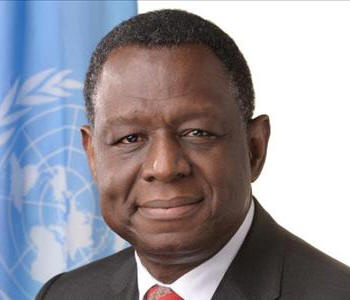Violence against women and girls is a violation of their fundamental human rights, an affront to human dignity and a serious threat to their health and well-being. It impedes their civic engagement and role in development; it generates instability and makes peace harder to achieve.

One of every three women has been subjected to physical, emotional and/or verbal abuse in her lifetime. More than 600 million women are living in countries where domestic abuse is not against the law. In countries where it is outlawed, gender-based violence still tops the list of civil crimes. Denying women access to sexual and reproductive health services, including family planning, is another form of violence and a further violation of their rights.
Millions of girls continue to suffer from harmful practices, including child and forced marriages, female genital mutilation and cutting and son preference that manifests in discrimination towards girls, including via gender-biased prenatal sex selection.
Violence against women and girls is exacerbated in conflict and disaster settings, where the risks are compounded by displacement, breakdowns in social norms and lack of access to services.
Right now in the wake of Super-Typhoon Haiyan in the Philippines, over 65,000 women and girls are at risk of sexual abuse. Trafficking of women and girls for sex - already prevalent in areas heaviest hit by Haiyan - is increasing, fuelled by the collapse in law and order that follows a disaster of this magnitude.
Though violence against women does not discriminate by context, class or country, it is also not inevitable.
On the occasion of the International Day for the Elimination of Violence against Women, UNFPA, the United Nations Population Fund, reaffirms its commitment to working for the prevention of all forms of violence against women and girls. We will continue to work in partnership with governments, civil society and through the United Nations Secretary-General's UNiTE to End Violence against Women campaign, so that survivors get the essential services they need. We are particularly committed to advancing our work in humanitarian contexts, including through further development of crisis-specific data systems on violence against women and girls, by ensuring survivors' access to life-saving services and through integrating attention to violence across other sectors.
In all contexts, we will continue to engage men and boys to help change social and cultural norms so that gender equality is upheld, the status of women and girls elevated, and violence rendered socially unacceptable.
Member States have made commitments to ending violence against women and girls, most recently at the United Nations Commission on the Status of Women earlier this year. UNFPA is committed to supporting them in making good on their promise to fulfill the aspirations of women and girls across the globe to live in safety and with dignity.
UNFPA fully supports UN Women's call for a goal on gender equality and women's empowerment in the post-2015 development agenda, and we are working to ensure that this includes special attention to the vulnerabilities of adolescent girls, particularly related to gender-based violence, sexual coercion, child marriage, female genital mutilation/cutting and other harmful practices.
We will not stop until the world upholds the inherent dignity and rights of every woman and girl.

